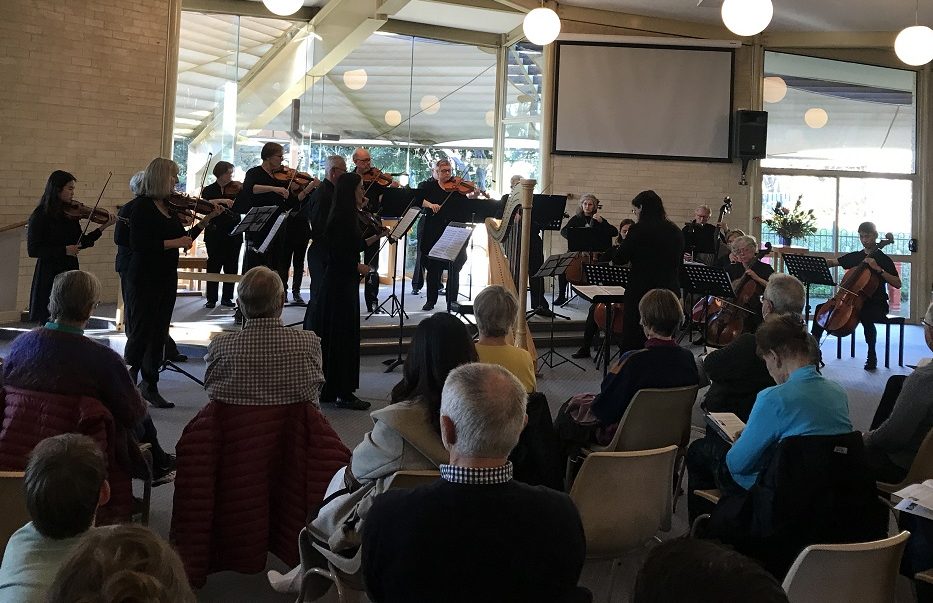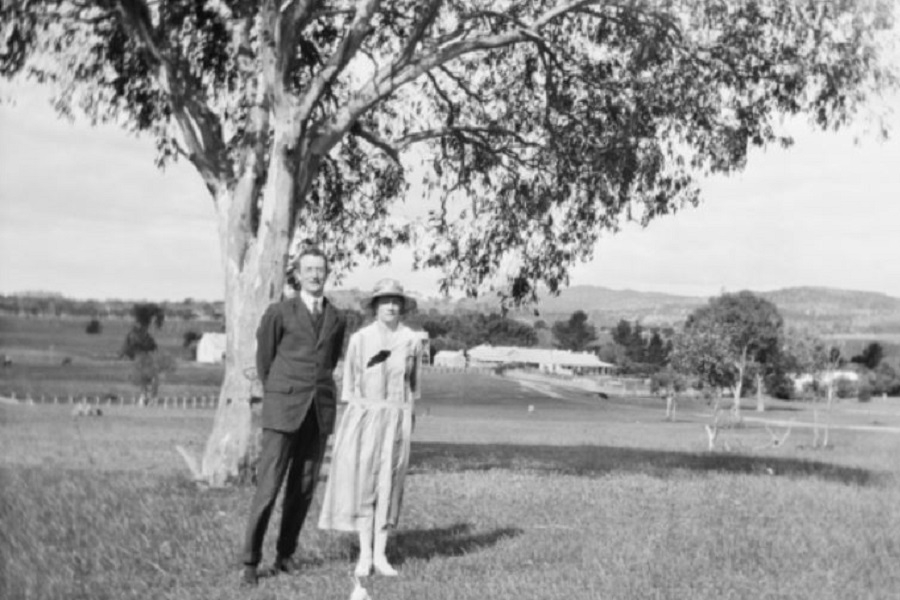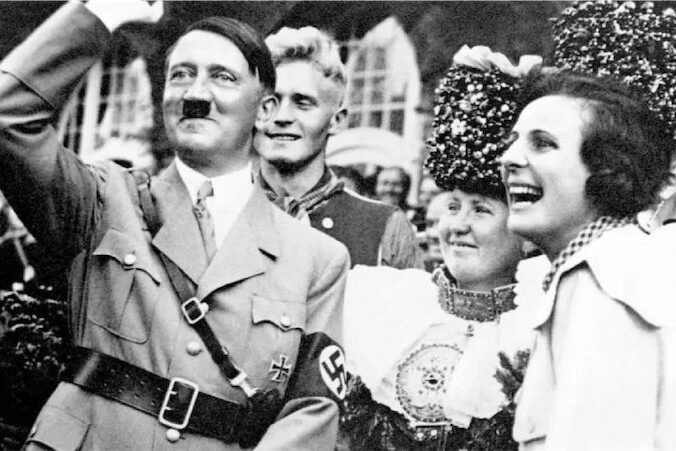
Music / “Strings and Harp”, Musica da Camera String Orchestra. At Holy Covenant Anglican Church, Cook, June 18. Reviewed by GRAHAM McDONALD.
MUSICA da Camera is a Canberra-based chamber orchestra that has been making music here for more than 40 years.
It performs a couple of times a year, often during winter in the glass and steel hexagonal of the Holy Covenant Church in Cook, sometimes also taking the concerts out of town to smaller regional towns such as Gundaroo or Gunning. There were 20 players under the skilled direction of Lizzy Collier.
The concerts are usually built around some thematic idea and this was of music for string orchestras written from the 1890s through to the 1920s, all works that are sombre and reflective in different ways.
The first work was “Elegy for String Orchestra (in memoriam Rupert Brooke)” written in 1915 by the Australian/British composer Frederick Septimus Kelly whose work has recently been rediscovered by Chris Latham and used in Latham’s musical remembrances of World War I. “The Elegy” is a very attractive piece of music, constructed in small sections using different groupings of the instruments, with a middle section which brings in all the players. This especially worked well with a fine balance of the instruments.
This was followed a Romance by English composer Gerald Finzi written in the late ’20s. In many ways quite a similar work to the Kelly piece, being quite slow and melodic with the cello playing noticeably fine. The next work was an early composition by Arnold Schoenberg, when he was 21 and, in the words of Lizzy Collier “before he went modern”. “The Notturno for Strings and Harp” is pretty but not particularly remarkable, although the harp did not seem to have much to do until near the end or was just playing quietly in the earlier sections.
The major work for the concert was “Serenade for Strings in E flat major, Op.6” by the Czech composer Josef Suk and written in 1892, as he was courting the daughter of Antonin Dvorak, his composition teacher. Collier describes this as “meaty dense string work” and she drew a most pleasing performance from the orchestra through the four movements.
The concert finished with Ralph Vaughn Williams’ “Fantasia on Greensleeves”, with some sparkling solo work from first violin Jacelyn James and harpist Elizabeth Alford. I had forgotten what glorious harmonies Williams had written for the violins over the violas playing the main melody which bookends the work and the orchestra brought this music to life.
If there is a small criticism of the concert, it would be that the works performed were all a little too similar in style and pace. One piece a little different might have added a variety that was missing. While Musica da Camera doesn’t have the drilled perfection of a fully professional ensemble such as the ACO, it has been an important part of Canberra music making for many years and always provides enjoyable and satisfying concerts. This one was another in that series.
Who can be trusted?
In a world of spin and confusion, there’s never been a more important time to support independent journalism in Canberra.
If you trust our work online and want to enforce the power of independent voices, I invite you to make a small contribution.
Every dollar of support is invested back into our journalism to help keep citynews.com.au strong and free.
Thank you,
Ian Meikle, editor








Leave a Reply